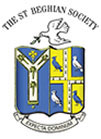|
 |
The Old St Beghian | |
| July 2023 | |||
60 Years on, a Follow Up.
Following Mark Spencer Ellis’ (SH 62-63) and Ian McNicol’s (SH 62-67) piece in the January issue of the Bulletin, Chris Lord (G 53-57) posed the question to Mark,
‘What happened between 1962 and 1963?’ What follows is Mark’s reply.
“I do think that Geoffrey Lees was way ahead of his pupils in grasping the way times were changing. Though no Bob Dylan - in fact he cultivated a very conservative facade, some of which he fully endorsed - he could see what we could not, even though, or especially because, we were the people he was talking about.
My take on his remark is not that we were dismissive of deferentialism: I’m sure every generation has been fairly scornful of the one they saw as holding them back, but I think the point Geoffrey was making was more subtle.
He could see that some of us were reading Private Eye, and that our favourite television programme was That Was The Week That Was. Sometimes it’s a very narrow line between satire - ‘To heal with morals what it hurts with wit’ (Alexander Pope) - and taking the piss. Sixth Formers have always done the latter, but we were becoming more and more aware of the feet of clay which were holding up institutions and prominent individuals, and were - I say this retrospectively - becoming more apt to ask why we should accept as normal, aspects of society that had previously been relatively unchallenged.
And I think Geoffrey was perceptive enough to realise that there were potentially profound shifts underway in our world. The cultural popularity of working-class writing, film and music wasn’t just the Beatles. It’s telling that the Shrewsbury-educated disc jockey John Peel assumed a Liverpool accent to give him credibility with his listeners. And with the possible exception of The Ragged Trousered Philanthropists, almost all pre-1950s creative writing had middle-class implied readers, in particular D. H. Lawrence, whom I studied for A level. Popular films or music can have an almost immediate impact, but - with the notable exception of the Penguin paperback of Lady Chaterley’s lover in 1960 – novels and plays which broke the mould in the 1950s, such as Saturday Night and Sunday Morning or Look Back in Anger, didn’t really enter popular consciousness until later, and in the case of the novel, when it was made into a film.
There was a moment that struck me in 1964 that I think would have been unlikely ten years earlier: before the 1964 General Election the Labour and Conservative candidates agreed to speak to the sixth form and staff. I vividly remember that after the event - perhaps but not entirely because the Conservative candidate could have been kindly described as a chump - our House Tutor on School House, John Jones, told some of us that as a result of the event he and several colleagues would be voting Labour.I don’t think many of us were aware of the extent to which our culture was changing; for some of us the next step was the student movements of the late 1960s, for others a more gradual liberalisation, and for others the understandable reaction of becoming ‘young fogies’. But I do think Geoffrey Lees grasped what was going on, and I hope this begins to explain my take on his remark.”
Home
The St Beghian Society
St Bees School,
St Bees, Cumbria, CA27 0DS.
Tel: (01946) 828093 Email: osb@stbeesschool.co.uk
Web: www.st-beghian-society.co.uk
![]()